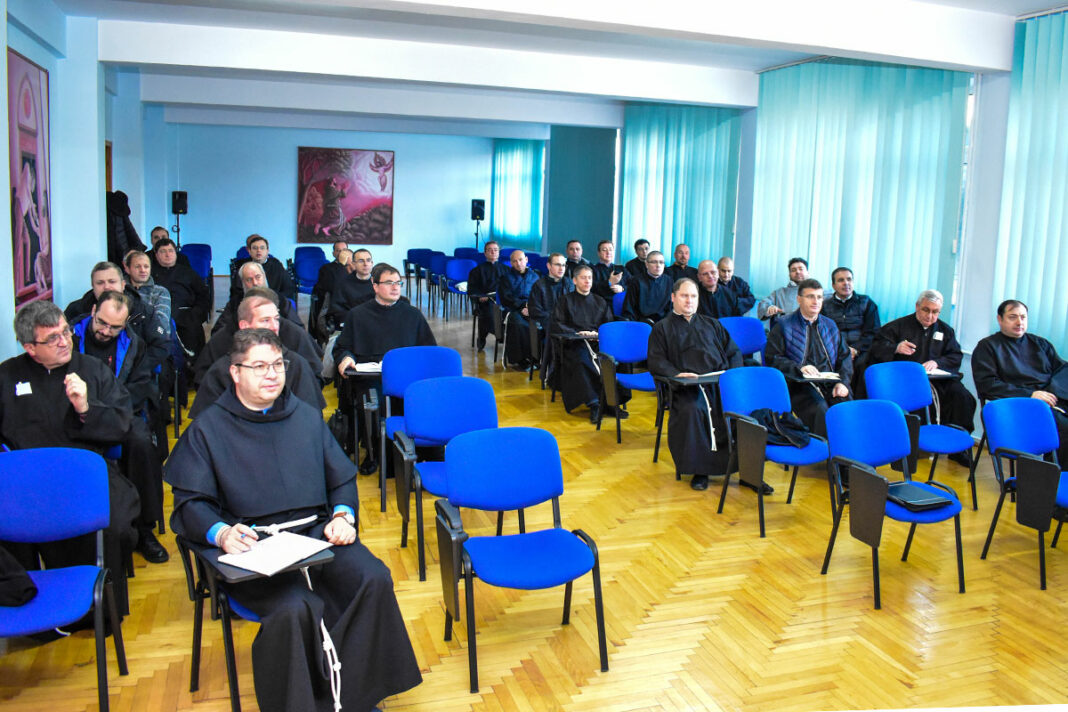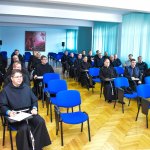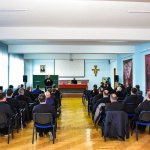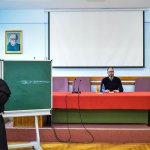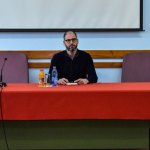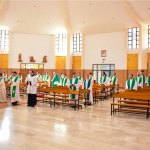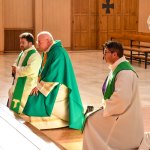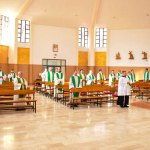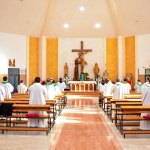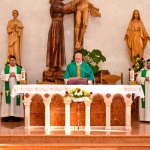On November 23 and 25, 2021, the Province of St. Joseph, Spouse of the B.V.M. in Romania conducted its annual ongoing formation meeting for the friars of the Province. The meeting was repeated over two days with two different groups in order to involve as many friars as possible. Both meetings took place at the St. Francis of Assisi Friary in Roman, Romania.
The speaker for the event was Mr. Federico VENCESLAI, an Italian psychologist and psychotherapist, a resident of the beautiful Italian region of Umbria (a region full of Franciscan significance). The theme of the meetings was “identity.” The speaker gave a clear, practical and interactive presentation, which very quickly captured the attention of the participants. He very skillfully led the friars on a journey of knowledge about their own identity, and about the psychic processes that interact in a dynamic way with the formation and maturation of the human identity.
Mr. VENCESLAI structured his presentation by first talking about the Catechism of the Catholic Church. He read a few of its numbered passages and emphasized the importance of the formation of conscience, which is an educational process that lasts throughout life.
Our identity is formed gradually: we internalize fundamental beliefs about ourselves in the first six years of life; we consolidate them between the ages of seven and fourteen. They are then stabilized between the ages of fifteen and twenty-four of our development. A stable identity is characterized by emotional well-being, perceptual continuity and the ability to predict the effects of one’s behavior and attitudes. Traumatic experiences during early childhood can negatively affect the construction of identity to the point of even creating periods of regression or delays in identity and personality development. The first form of identity that the child builds is the learned identity. It refers to all the fundamental beliefs that are self-internalized in the first six years of life as a response to the ways in which primary caregivers treat and respond to the child’s needs. These beliefs can be rational and reflect a process of positive affective attunement with the reference figures, or they can be irrational and indicate dysfunctional or traumatic relational processes. The ego has the ability to process one’s learned identity when it has been destabilized through different experiences of crisis. At such times, the subject is pushed to question the beliefs that constitute his learned identity. If the subject is guided by fear, he will tend to return to an earlier stage of evolution through a process of regression in order to regain the sense of inner well-being that he thought he had. On the other hand, if the subject has the courage to be guided and helped by a specialist, he could overcome the conditioning limits of the learned identity and enter into a process of maturation and transformation towards a deliberate identity.
In this way, we pass from our learned identity to our deliberate identity. The result of this gear shift is greater well-being, profound inner freedom, and a higher level of personality fulfillment.
Although this transformation is fundamental for the human maturity of the consecrated person as well, it is not sufficient for spiritual fulfillment. A further step of growth is needed. This step will no longer rely on the ego as its main actor but will have to give way to God. It will be God who, through His grace, will lead the consecrated person to achieve an evangelical identity and to live in harmony with God’s will and with his own vocational charism. In this process of transformation towards the evangelical identity, the ego can do nothing but step aside to make way for God and His intervention. Thus the mystery of the creature will find its fulfillment in the profound mystery of God.
We thank Mr. Federico for being available to us and for his valuable contribution in helping us to understand our identity. May the Lord give us the grace to recognize and let go of our ego and its workings so that God may have the freedom to transform us and lead us to achieve an evangelical identity.
Friar Lucian HORLESCU


